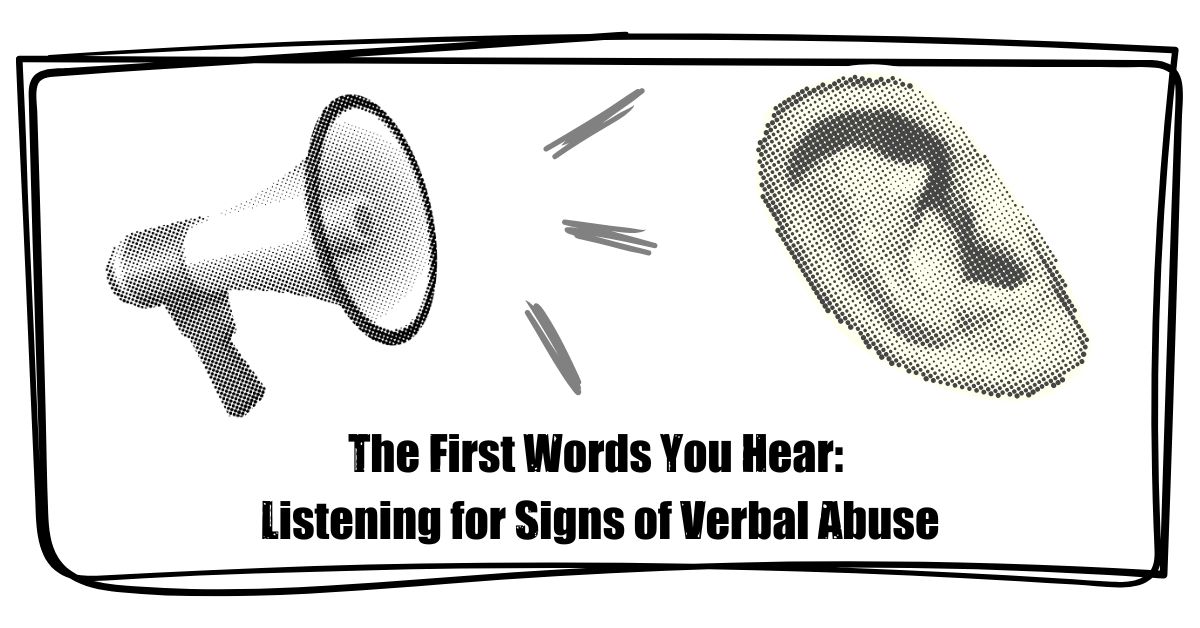
Terms like “domestic violence” and “intimate partner violence” conjure imagery of physical abuse. We tend to think these forms of control are identifiable on sight. However, IPV is a complex application of abuse and power that doesn’t just manifest in one single form. Verbal abuse is incredibly harmful, often harder to recognize, and can rapidly escalate.
The early “first words” of abuse can be unassuming and seemingly innocuous. But their repetition and escalation are revealing indicators of who someone is and how they might treat you. The wording of these statements might not always be the same, but the intensification patterns are unmistakably similar.
How Abuse Escalates Through Words
Knowing what abusive language looks like early on can protect yourself and your loved ones going forward.
Being Overtly Possessive
Control is the consistent factor in any form of abuse — early statements or comments that indicate possessiveness are clear warning signs of how someone views a relationship.
- “I don’t like when you hang out with that person.”
- “You need to turn your location on so I know where you are.”
Outsourcing Blame
Abusers are notoriously incapable of taking responsibility for their actions, a trait that can show up early in a relationship (particularly in an argumentative way).
- “My job makes me too tired to deal with you when I get home.”
- “Your friends don’t know what they’re talking about, we’re in love.”
Exerting Control
Cultivating possessive relationships comes from a deliberate effort by the abuser to assert dominance over the other through behavioral patterns enacted over time. Combined, these statements show a narrative arc of abuse built around controlling language and actions.
- “I don’t care how long it’s been, I don’t want you seeing anyone else anymore.”
- “You’re not going to see your parents this weekend anymore. I don’t like the way they talked about me/us.”
How Verbal Abuse Fits Into IPV
The phrases you see above very carefully toe the line between active and encroaching abuse. But like any form of control and power, abuse follows a consistent pattern that escalates via certain tactics — something observed in the Biderman chart of coercion, which is a sociological blueprint for abuse. Under this logic, two key early stages of control are:
- Isolation — Here, the abuser deprives an individual of social support while stripping away their ability to resist, all in the name of creating a dependency. Enforcing their control is easier when the individual is made to feel like they don’t have an alternative or outside form of help.
- Monopolization of Perception — By creating greater stress on accelerating a relationship, or pushing blame on negative aspects onto other people outside the relationship, an abuser attempts to take greater control of an individuals perception of where they stand and what they can actually do in the context of the relationship.
Verbal abuse is present and deeply harmful at all levels of Biderman’s chart of coercion, but these initial phases highlight how abusers use words to manipulate partners to their advantage early on.
“What Can I Do About Verbal Abuse?”
Remember — no situation is permanent. DVP and organizations like ours offer resources to help you or anyone find their way out of abusive situations and set themselves on a path of recovery, safety, and liberation.
If you or someone you know is in an abusive situation, reach out to us:
- Contact our intake line: 1-833-321-4DVP (833.321.4387)
- Email us at dvp@urbanjustice.org
- Send us a direct message here
If you want to do more to help survivors of abuse in all forms, DVP welcomes the assistance of all types of volunteers, translators, and more.
Learn more about how you can support survivors and their children to live free of violence and abuse.
Contact Domestic Violence Project
We welcome your questions and comments
Main Office
40 Rector St., 9th FloorNew York, NY 10006
Intake line: 1-833-321-4DVP (833.321.4387)
Email: dvp@urbanjustice.org
Hours
M-F: 9:00AM-5:00PM
By appointment only.


